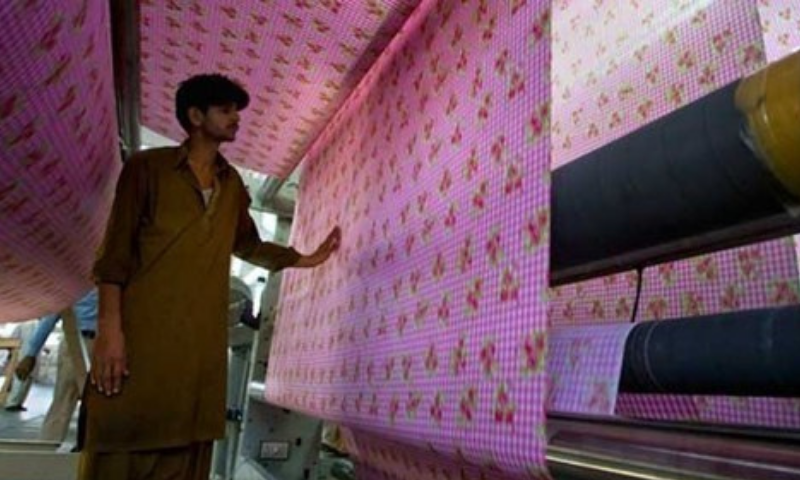ISLAMABAD: Pakistan’s textile and clothing exports grew 11.3 per cent year-on-year to $1.189 billion in September compared to $1.068bn, data released by the Pakistan Bureau of Statistics showed on Saturday.
In August, the export proceeds declined by over 15pc, while it posted a growth of 14.4pc in July. The demand for country’s exports has collapsed since March due to the Covid-19 while a gradual improvement was seen since June from international buyers.
However, in July-September, textile exports inched by 2.92pc to $3.46bn, from $3.37bn in same period last year.
Details showed ready-made garment exports edged up by 12.62pc in value while plunging in quantity by 41.19pc during September. Those of knitwear increased by 24.08pc in value and 9.56pc in quantity; bedwear exports were up 13.23pc while dipped 13.64pc in quantity, respectively.
Towel exports went up 29.85pc in value and 16.17pc in quantity, whereas those of cotton cloth dipped 7.06pc and 12.55pc in quantity.
The government lifted the ban on exports of seven products classified as personal protective equipment (PPE) in a bid to allow manufacturers to honour international orders.
Among primary commodities, cotton yarn exports plunged by 36.77pc, yarn other than cotton by 8.77pc, made-up articles — excluding towels — was up 31.47pc and tents, canvas and tarpaulin increased by a massive 58.28pc during the month under review.
The import of textile machinery dropped by 25.09pc during the first quarter of current fiscal year— a sign that no expansion or modernisation projects were taken up by the industry in the given period.
Petroleum imports declined 26.55pc in the first quarter (July-September) to $2.32bn, compared to $3.16bn over the last year.
Of these, petroleum product imports were down 14.68pc in value in the first quarter despite increasing by 65.3pc in quantity. Similarly, import of crude oil dipped 15.86pc in value and but posted a growth of 30pc in quantity during the period under review while those of Liquefied Natural Gas fell by 56.52pc in value.
On the other hand, liquefied petroleum gas imports jumped 46.43pc in value in July-September, largely to plug a shortage in local production.
Machinery imports slightly went up 3.65pc to $2.10bn in the first quarter from $2.03bn while those of power generating machinery were up by 35.89pc. It shows that the power generating machinery from China is restored from the current fiscal year.
In the telecommunication group, imports surged by 57.54pc led by mobile handsets higher by 83.17pc. This was the result of a crackdown on smuggling and doing away with free imports in baggage schemes. Import of other apparatus fell by 7.78pc.
The overall transport group also witnessed contraction of 22.99pc. An increase of 50.09pc was seen in imports of textile group — raw cotton, synthetic and artificial silk yarn.
The overall food group import jumped by 56.04pc during the first quarter from a year ago. The government import wheat and sugar to bridge the local shortages. The import of almost all essential food products — spices, palm oil, tea, milk etc witnessed growth during the months under review.
Published in Dawn, October 18th, 2020













































